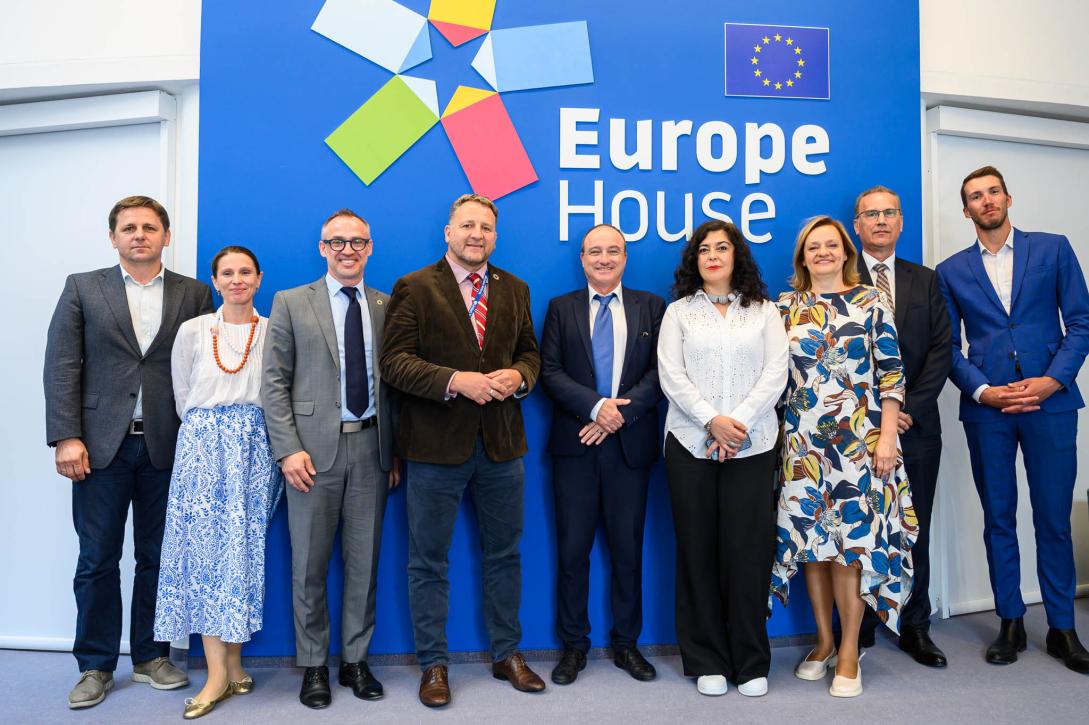Over 2,000 beneficiaries and 300 new jobs – EU support delivers results for the BiH agriculture sector

Agriculture and the food industry are key pillars of Bosnia and Herzegovina’s economy. To ensure the sector is competitive, sustainable, and aligned with EU standards, the EU is providing assistance with modernisation, digitalisation, and legislative reform.
Over five years from 2020 - 2025, with an investment of €20 million, the EU-funded project EU4AGRI delivered support for 2,040 agri-food operators, including more than 1,600 small farms, and the creation of 307 new jobs, more than half of which were for women and young people. The project was implemented by the United Nations Development Programme (UNDP) in BiH in partnership with the Czech Development Agency (CzDA).
The project’s key results were discussed today at a panel discussion in Europe House Sarajevo attended by representatives of relevant authorities, academia, and chambers of commerce.
Stefano Ellero, Head of Cooperation at the EU Delegation to BiH, emphasised: “EU4AGRI project has demonstrated that strategic investments can make a significant contribution to the development of the agri-food sector. We have connected innovation, digital solutions, and policy with the real needs of local communities. These results are not just numbers on paper, they are stories of families with more stable incomes, of young people who have gained their first work opportunities in the sector, and of businesses that now operate more competitively and with greater environmental responsibility. The EU remains committed to supporting Bosnia and Herzegovina on its path to the EU, through strategic investments and digital innovation, improving the competitiveness and sustainability of the agricultural sector and laying the foundations for long-term development aligned with EU standards.”
The project enhanced advisory services, digitalised public administration, and supported the development of key strategic documents such as the Strategic Plan for Rural Development of BiH 2023–2027 and the Law on the Organisation of the Wine Market of BiH. The Grant Management Software is already in use by several entity-level ministries, while online advisory platforms for farmers present a model for the digital transformation of public services.
Renauld Meyer, UNDP Resident Representative in BiH, stated: "The EU4AGRI Project has laid the foundation for a more resilient, inclusive, and technologically advanced agri-food sector in Bosnia and Herzegovina. By investing in people, including women and youth, as well as in climate action and digital transformation, we haven’t just delivered results—we’ve created lasting impact. As UNDP, we bring the strength of global expertise and local partnerships to drive sustainable development, and we remain fully committed to supporting Bosnia and Herzegovina on its path toward a greener, more competitive, and future-ready economy. Through strong collaboration and shared vision with the EU and commitment of local partners across Bosnia and Herzegovina, we have demonstrated the power of partnership to drive systemic change and accelerate progress toward sustainable development."
Slobodan Cvijanović, Assistant Minister at the Ministry of Foreign Trade and Economic Relations of BiH, added: "Institutions in Bosnia and Herzegovina face complex challenges in aligning the agricultural and rural development sector with European Union standards. Fragmented institutional structures, uncoordinated legal frameworks, and limited administrative capacities are slowing reforms. However, solutions are within reach: with political will, unified coordination, strategic planning, and access to EU funds, BiH can take a decisive step toward an efficient, functional, and EU-compliant rural development system.”
The project also facilitated the adoption of climate-smart technologies, such as weather stations and intelligent software tools, significantly increasing the sector’s resilience to climate change.
Priorities in the coming period include continued implementation of adopted strategies, strengthening advisory services, expanding digitalization, and improving access to European markets, particularly in the areas of wine, organic production, and food processing.
